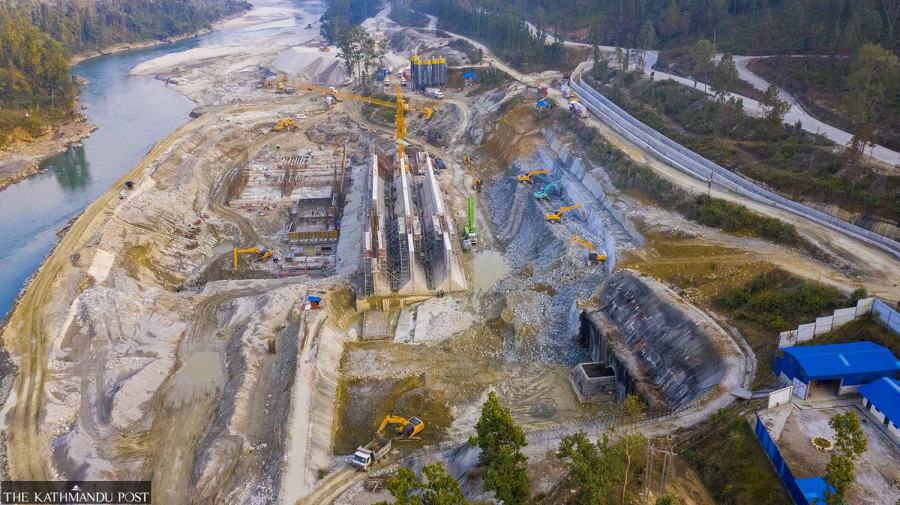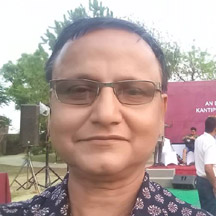Lumbini Province
Bheri Babai irrigation, hydropower project pushed back further
The project aims to provide year-round irrigation to 51,000 hectares in two districts and produce 48-megawatt electricity.
Kamal Panthi
The completion of the Bheri Babai Diversion Multipurpose Project, a national pride initiative in mid-western Nepal, has been delayed by four more years. Originally slated to complete in 2024, the project has achieved only 51 percent physical progress.
The government invited bids for construction in July 2012. However, resource constraints and delays in appointing a contractor prevented the four-year project from commencing on schedule.
Construction finally began in April 2015 when then-prime minister Sushil Koirala broke ground. The diversion tunnel, a key project component, was completed on April 16, 2019, six months ahead of schedule.
The tunnel was built by China Overseas Engineering Group and China Railway No 2 Engineering Group, both subsidiaries of China Railway Group.
Despite the early completion of the tunnel, the project overall has faced significant delays. The initial target was to complete and hand it over by 2018-19. However, factors such as the Covid-19 pandemic, budget constraints, and logistical challenges have extended the timeline.
The Chinese contractor handed over the tunnel on September 2, 2020, marking a significant milestone. Notably, the excavation was done using a tunnel boring machine, a first for Nepal.
Currently, the project is in its second phase, involving the construction of a 15-metre-high dam to divert 40 cubic metres of water per second from Bheri River to Babai River. The cost of the tunnel alone exceeded Rs10.56 billion.
The diversion project is expected to significantly contribute to Nepal’s food security by providing year-round irrigation to 51,000 hectares of land in Banke and Bardiya districts. Additionally, the project includes the construction of a 48-megawatt hydropower plant.
The Bheri river has an average water flow of 76 cusec, making it a viable source for irrigation and hydropower generation.
According to project chief Pawan Adhikari, water diversion from Bheri to Babai river is expected to commence by the fiscal year 2027-28. About 15 cusecs of water will be allocated to irrigate 22,000 hectares of farmland in the Chisapani region of Banke.
The project is being funded through domestic investment at an estimated Rs33.19 billion. So far, Rs16.05 billion has been spent. The construction site is located in Bheriganga-8, Surkhet, with water being diverted into the Babai river via Basgadhi-1, Bardiya.
To facilitate construction, approximately 1,700 trees were cut down, including 700 large trees.
While the environmental impact has been a concern, the project’s long-term benefits in agriculture and energy are expected to outweigh the initial ecological costs.
The concept of the Bheri Babai Diversion Project dates back to 1977, when it was initially inspected as part of a study on the Babai Irrigation Project. In 1992, the Japan International Cooperation Agency (JICA) identified the project as a priority for hydropower development in the Karnali Basin. Further feasibility studies and planning were conducted in 1998.
Upon completion, the project is expected to make an indirect financial contribution of Rs3.1 billion to the state through increased agricultural productivity, alongside a direct revenue contribution of Rs2.1 billion from energy sales.
Project authorities hope the works will proceed without further delays, ensuring completion within the revised time frame.




 16.92°C Kathmandu
16.92°C Kathmandu















